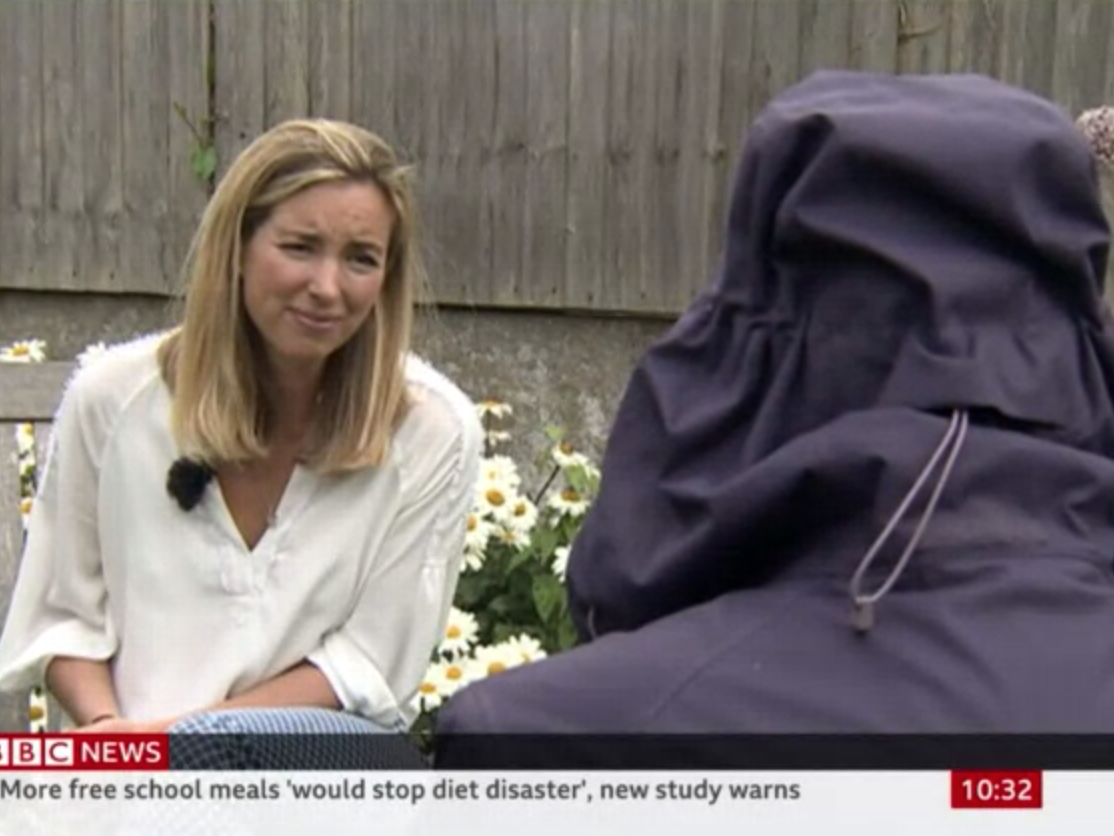I made a BBC presenter apologise for the use of the N-Word in 2014. It was wrong then, and it’s wrong now

In the last week alone, the N-word has been broadcast in two separate programmes on the BBC.
The first during a news report about a racist attack against an NHS worker, in which Fiona Lamdin, a white journalist, used it in reported speech. The second time a few days later in the repeat of the programme, American History’s Biggest Fibs, in which white presenter Lucy Worsley used the word, quoting a historical figure.
The BBC was wrong on both occasions to broadcast the word.
How can I be so confident and definitive in saying so?
Because I worked at the BBC for 24 years, the last eight of them as a senior executive. I am fully aware that BBC itself says use of strong words in general are wrong in its own editorial guidelines under section 5: “Harm and Offence”.
The guidelines state: “Programmes broadcast on UK television between 5.30am and 9pm must be suitable for a general audience including children.” and goes on to say “any proposed exceptions must be referred to the channel controller/editor.”
The news report of the racist attack was aired at 10.30am, “American History’s Biggest Fibs” was aired at 8.00pm.
I do not think I am being controversial when I say that the N-word is not “suitable for a general audience including children”. One can argue that there might be times when racial slurs, just like some of the worst swear words, are editorially justified in a programme after 21.00, (personally I don’t think either of the two examples warranted it). But you need to take a pretty radical stance to justify the use of the word when it is assumed children could be watching.
So how could the BBC make such a bad mistake – twice?
Breaching their own editorial guidelines – twice?
To answer that, I want to share a little story.
Six years ago I was the editor of Scotland 2014. The programme was a nightly political programme that replaced Newsnight in Scotland during the independence referendum. One night, we had an item on racism in the country and one of the nice liberal guests used the N-word to supposedly illustrate his point of how abhorrent the word is – bear in mind this was live and after 10.30pm when children have all gone to bed. When the word was used, I was in the back of the studio gallery. I was not only the most senior editorial figure on duty but I was also the only non-white person.
I told the presenter to immediately go to the next item which was a short film. While the film was running I explained to the studio guests that they can’t use that language and when the film finished, the presenter then apologised to the viewers for any offence caused – while still acknowledging the point the guest was trying to make.
The whole affair lasted a few minutes and it is now just an anecdote I sometimes tell at dinner parties.
However, the story is incredibly rare.
It is very uncommon that the most senior editorial figure on a British television news production is black and understands the full meaning of the word on both an analytical and emotional level.
To my knowledge, there is not a single major television news bulletin on the BBC, Channel 4 or ITV where the editor-in-chief is black, Asian or from an ethnic minority. In fact, there is not a single major television current affairs programme, such as Panorama or Dispatches, where the top executive producer or editor in charge behind the scenes has been a non-white person.
But the issue goes deeper than news and current affairs.
The 2020 Bafta Television Awards were recently lauded for its range of ethnically diverse winners including “When They See Us” for best international television and The End Of The F***ing World's Naomi Ackie for best supporting actress. However, just two weeks prior, Bafta held their “Craft Awards” for the directors and writers and people who actually make the programmes. Not a single winner came from an Asian or Black background.
And so, what you have at the BBC specifically, and in British television in general, is a situation where remarkably, few of the key editorial decision-makers who rule on racially sensitive issues, from the use of the N-word to how to cover Black Lives Matter protests, are non-white.
It has created a situation where veteran news reporter Jon Snow lamented the inability of journalists to cover the issues surrounding Grenfell before it burned down due to the media’s “own lack of diversity”. An ineptitude which some would say resulted in the deaths of 72 people, the majority of whom were non-white, in so much as good journalism on a respected platform often causes issues to be addressed.
It is important for all of us to hold our national broadcaster to account when it makes mistakes. Use of the N-word is a case in point.
But if we want all of our media to stop making these kinds of mistakes, we must go to the root cause, and that is to ensure that there is better representation of people from all different backgrounds in positions of real editorial power. The consequences of failing to make that happen can be and often are a lot worse than broadcasting the N-word when children could be listening.
Marcus Ryder is the Chair of the Sir Lenny Henry Centre for Media Diversity
Read more
Third man arrested for attempted murder of NHS worker
NHS worker lucky to be alive after being hit by car in ‘racist attack’
BBC criticised over Lucy Worsley use of n-word in historical show
BBC apologises after playing song with racial slur live on 6Music

 Yahoo News
Yahoo News 
